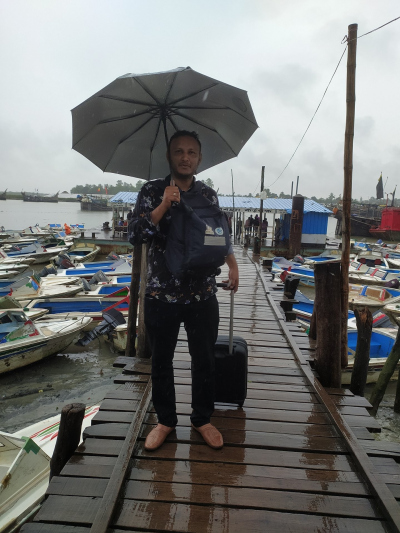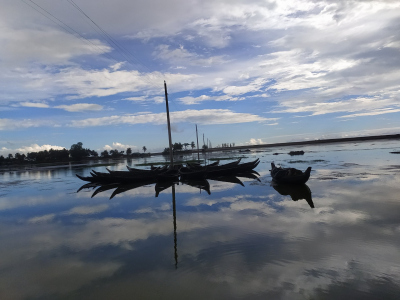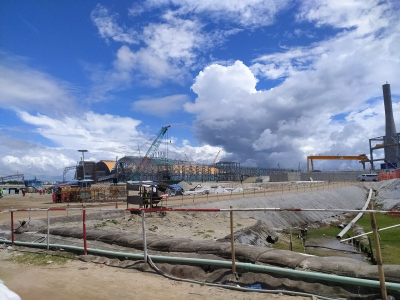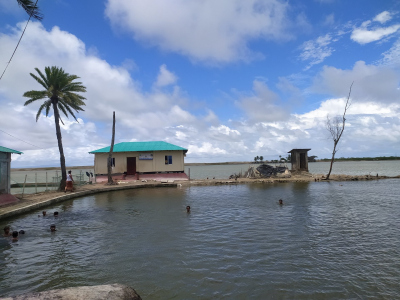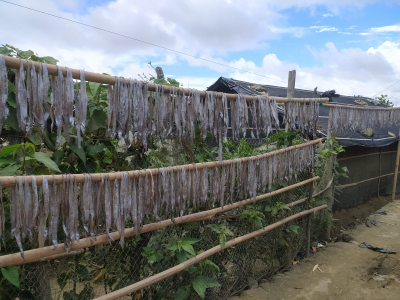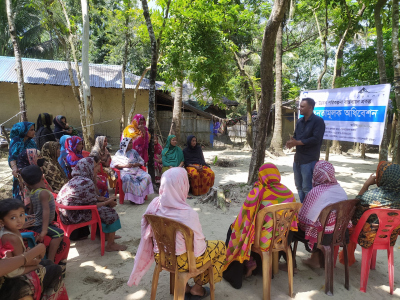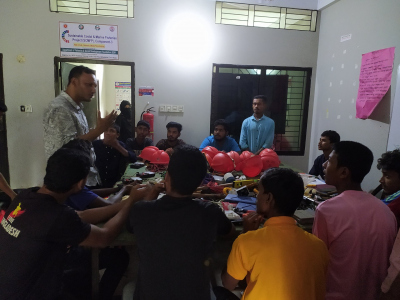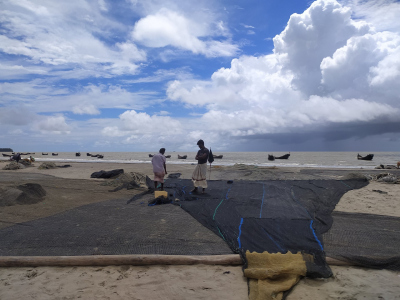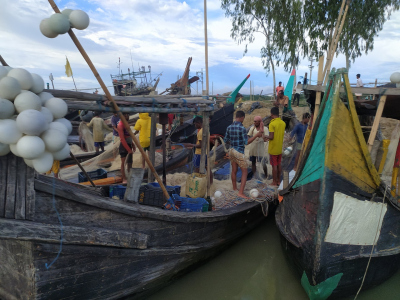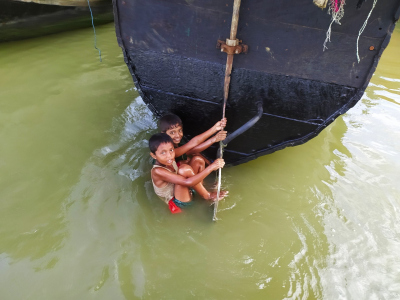Jewel Das
Report of GLOMAR PhD student Jewel Das about his research placement on Maheshkhali Island, Bangladesh, from 3 August until 7 October 2022
After starting PhD studies in summer 2021 at the University of Bremen and ZMT, I was eagerly waiting to go to the field to meet stakeholders and communities related to my research. COVID pandemic situation was threatening in this process. However, the pandemic restriction was becoming a bit easier apart from some regular precautionary steps. In August 2022, I was able to visit a coastal island of Bangladesh named Maheshkhali which is one of my crucial research sites. This south-eastern coastal island is experiencing huge change due to the government's target to establish megaprojects. It is somewhat connected with the terrestrial areas during dry season and possesses decent connectivity through waterways as well.
The main purpose of this visit was to establish a communication channel for my research. Besides large investments from government and private sector, one of the concerns for the locals and their livelihoods of this island was always central from social-ecological system research perspectives. Furthermore, the blue economy or blue growth agenda in Bangladesh aims to invest more in coastal and marine sectors in terms of power generation, port facilities, ecotourism and terminal establishment. These investments and infrastructure developments are sometimes likely to generate inequities for the coastal poor. Moreover, small-scale fisheries (SSF) face antagonistic or incompatible relations with coastal megaprojects, sometimes. My research addresses the options for these communities in the face of blue growth.
A seven weeks field stay at this island facilitated me to meet a range of stakeholders and coastal marginal communities in terms of sharing experiences, ideas, their way of living, adaptation and way forward thoughts. Prior to visit, I fulfilled all the ethical clearance process from ZMT and ensured safety protocol in the field. My key contact for this research stay was the Center for Sustainable Development (CSD), University of Liberal Arts Bangladesh (ULAB). This is an interdisciplinary research institute in Bangladesh that works with sustainability research. Dr. Samiya Selim, director of this institute enabled me to connect with stakeholders and field-level marginal communities in this regard.
My experience with coastal Bangladesh was very amazing and crucial. Because my research focuses on blue growth and small-scale fisheries, I talked with quite a large number of stakeholders and individuals associated with these contexts. This island has been targeted by the state and private companies for investment in terms of power plant, deep sea port, ecotourism zone and terminal initiatives due to the suitable communication facilities and resource availability. Yet, the coastal poor people, particularly, small-scale fishers are facing some problems like displacements, obstacles in access to resources, grabbing areas and hampering livelihoods. Government supports through compensation to some communities and private sectors (i.e. the investors) are initiating development projects for affected people in different means like capacity building, access to finance, women empowerment and alternative livelihood strategies etc.
Different stakeholders shared their perspectives and way forward potential governance responses to sustain human-nature interaction in this island. The main livelihood options for these islanders are fishing, salt-farming, agricultural farming like betel leaf, vegetables and seasonal crops. Small-scale fishing plays a vital role in the economy of this island and dominates for income and nutritional securities. Recent changes in social-ecological systems of the island popped up challenges for coastal marginal communities and these contexts demand further interventions to adapt and cope up with the deviations. Dealing with coastal marginal people and knowing their problems along with coping mechanisms and social-ecological systemic changes gave me some significant perspectives for my future research. The communication and discussion was easy for me as I am acquainted with the language of the contexts and my staying in this island justly helped me to set up further penetration of the emerging issues for research. I acknowledge the University of Bremen for aiding this research stay and my sincere gratitude to the GLOMAR and ZMT to enhance my methodological capacities and finally heartfelt gratitude to the participants of the islanders who catered my research stay to be a successful one.



